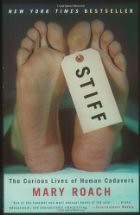Basically, our argument revolved around changing technology and the effects it may have on the ways we think and interact with media. There has been a lot of press attention about this topic, lately, so I thought that this would be a timely post.
Well, my brother has become pretty disgusted with social media and the distractions it offers. I asked him how he feels about the move toward e-books in favor of traditional print materials. Of course, he hates the idea. Newspapers have been struggling/failing for years to retain subscribers, because so much is readily available online, and at no or little cost to readers. Similarly, album sales have declined as downloadble content has gained immense popularity. It's easy to see booksellers heading down a similar path. Last Christmas, Amazon reported more e-book sales than sales of print-media.
My brother's complaints were many, but I can summarize them here:
- Reading on a screen is not as effective or thoughtful as reading directly from print materials, because people are more likely to skim instead of reading and evaluating the material more thoroughly. In addition, the act of swiping or clicking a button to turn a page limits the attention that we give to reading.
- The probability that e-books will eventually include links to outside media (audio files, photographs, video, etc.) fundamentally changes the reading experience. It makes us more distracted and less engaged in reading the text. (Without saying so, he also implied that adding these "extras" also subverts the author's original intentions for the work in question.) He likened the downfall of print media to the demise of the symphony, claiming that the majority of people don't/can't sit through a symphony, because they have become incapable of doing so. We are too accustomed to being bombarded by content, and therefore, can't sit still long enough to appreciate it fully.
- We have become quite skilled at multitasking, but much less adept at focused, higher-order thinking. The majority of people who read e-books--especially those linked to to additional content--are less likely to think critically about what they are reading, because the format renders us incapable of doing so. We think that we will be able to rely on outside sources to give us correct information (a.k.a the "truth"), and most people won't bother to question that information. User-generated content is often to blame for low-quality information, but we have become more likely to look to it for answers. In the end, our personal, cultural, and intellectual values are corrupted.
- The e-book format renders all books equal, because they all look the same: as files. Due to limited storage and the lack of physicality, the format lends itself to "disposable" culture. We care less about books and the authors that create them, because they have become too easy to throw away. ...and then we move on to the "next big thing."
I won't go into my responses yet, suffice to say that I have a habit of playing the Devil's Advocate. I think it is important for people to question their own beliefs and motivations, so I like to push those buttons. I always think back to what my (favorite) English teacher once told me, in high school: "I reserve the right to lie to you, if it gets you to learn." That's right, Mr. Miles. Preach.
Now, it's your turn. I want your reactions, opinions, questions, hate mail...all of it. What do you think?

